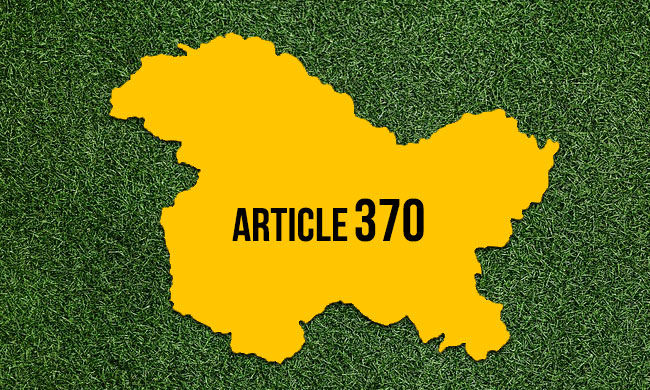Removal of Article 370, set to rebuild the food supply chain & Logistics

Jammu & Kashmir has been the largest apple-producing industry for the country and Kashmiri apple is supplied to all the big markets in different parts of the country. Supply of fresh fruits and vegetables is not a one -time activity. Fruit growers and fruit merchants generally release quotas of fruit close to some important occasions like festivals to make larger profits and larger sales. But this means the apple remains in cold storage for some specific time before the lot is brought out for sale. Existence of cold stores within and outside the State is a must.
The business of fruits
Jammu and Kashmir are facing acute shortage of cold stores to preserve their fruits and vegetables. The Sopore Mandi is Kashmir’s and India’s largest fruit market, and the second-largest in Asia, and is situated on the outskirts of Sopore town, known as the apple town of Kashmir. Established in 1988 on 372 kanals of land and considered the biggest fruit mandi in India, the market does a business of around Rs 2,600 crore each year. The lack of infrastructure and the dearth of cold storage are however hampering its growth.
According to the reports North Kashmir produces 3,97,675.61 MT of apples annually, with Baramulla being the highest producer at 1,72,813 MT. Of the three cold-storage units located in the district, only one is fully functional with a capacity of 3,000 MT. In 2015, the government had announced building these facilities on a priority basis at three fruit terminal markets including at Sopore. However, no progress has been made so far.
The cloud over cold storage
There are 18 operational Cold Storages with a total capacity of 49769 MT in the State of Jammu & Kashmir; all of which are located in Jammu. These cold storages are multipurpose with a part of their capacity (say 30 %, is about 15000 MT) used for storage of apples. There are 8 Controlled Atmosphere Storages in the Kashmir valley with a total capacity of 38000 MT. The average capacity utilization is 60 % during peak season and the annual average capacity utilization is estimated to be around 40%. The capacity is not fully utilized due to lack of awareness about grading, packing and storage as well as prevailing trading systems in the valley that focuses on immediate sale after harvest.
After union home minister Amit Shah introduced an act to scrap Article 370 and 35A of the constitution which gave Jammu and Kashmir special status as a state. These articles have been at the crux of the special status of the state of Jammu and Kashmir. With the passing of the bill, the minister proposed setting up of two union territories — Jammu and Kashmir, and Ladakh. The government has proposed that with the special status removed, the union territories will be open to private investments and thus, will grow.
A fruitful initiative
In this bid, the government is also reportedly looking to host an investor’s summit in Jammu and Kashmir on October 2019. The Jammu & Kashmir Entrepreneurship Development Institute (JKEDI), under the start-up policy, has been working to train the youth in retail, services, manufacturing, and agro-allied sectors to help them establish their ventures.
Hence, to conclude it won’t be wrong to say that scrapping of article 370 had been beneficial for Jammu and Kashmir in many ways including the fact that it has also opened doors for many private firms who are looking at opening cold storage facilities over there. If things work accordingly, this will defiantly reduce the wastage of fruits and will improve the storage conditions.


